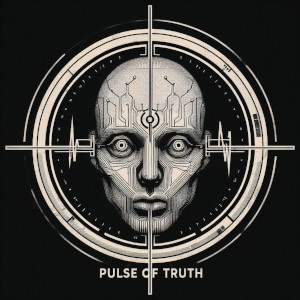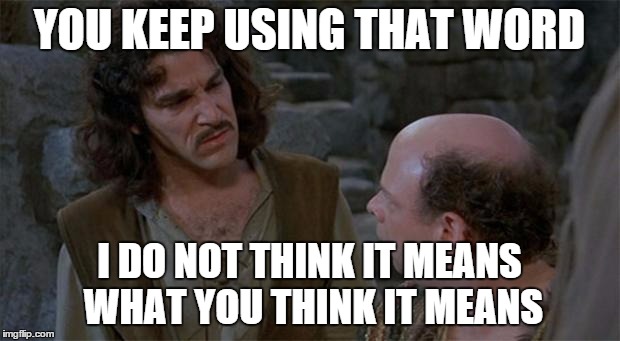







If you’re faced with the tradeoff between security and another priority, your answer is clear: Do security. In some cases, this will mean prioritizing security above other things we do, such as releasing new features or providing ongoing support for legacy systems.
~Satya Nadella, CEO of Microsoft, May 3, 2024



It’s adorable.
Yep, yep… until the teeth grow in.

Such a cutie.


I agree that redundancy is a good way to mitigate risk, but there are so many problems between us and successfully colonizing another world that this is basically a pipe dream.
Astronauts experience a lot of health issues.
After less than a month in space, the tubules that fine-tune calcium and salt balance showed signs of shrinkage, which the researchers say was likely due to microgravity rather than GCR.
The study suggests that optic disc edema and choroidal folding contribute to spaceflight-associated neuro-ocular syndrome, whose symptoms include headaches and visual impairment such as far-sightedness (hyperopia), which causes near objects to appear blurred due to lower visual acuity at short range.
The scientists said the heart tissues “really don’t fare well in space,” and over time, the tissues aboard the space station beat about half as strong as tissues from the same source kept on Earth. […] Previous studies showed that some astronauts return to Earth from outer space with age-related conditions, including reduced heart muscle function and arrhythmias (irregular heartbeats), and that some, but not all, effects dissipate over time after their return.
And of course there’s all the problems caused by radiation exposure once you’re outside the Earth’s magnetic field (Mars doesn’t have a global magnetic field). Basically, we can put ourselves in a tin can and venture into space, but the human body evolved in Earth’s gravity and radiation profile and it doesn’t do well outside of that. At the present you’d have to be suicidal to try to live long-term away from Earth, and I don’t think these are problems that we can just engineer our way out of.


This is a constraint designed into bitcoin to produce artificial scarcity so that the volume of tokens doesn’t massively inflate and destroy their value. A blockchain doesn’t have to operate this way if the goal is to produce unique tokens as identifiers rather than as currency.
There probably is such a conspiracy theory, or many based on the same theme. Occam’s razor applies though - it’s far simpler to just assume that Putin is a self-aggrandizing dictator who dreams of conquest (what do you get for a girl who already has everything?). After all, if it looks like a selfish asshole, and it swims like a selfish asshole, and it quacks like a selfish asshole, then it probably is.
Of course, there are many groups within the military-industrial complex who are happy to take advantage of his behavior.


The difference is scale. The larger they are, the longer they last, the more people they collect. More people means greater sociocultural presence which means more widespread acceptability even with non-believers. More people also means more money and other resources which means more power, the capacity to bend the society in which they exist. The larger “religions” label the smaller religions as “cults” as a form of basic anticompetitive practice.



So, like, which one goes in first? And if you need that, do you have to pull everything else out of your pocket to get to it?
Russia, the best recruiter for NATO.


Only one thing matters to Trump: Trump. Everything and everyone else is disposable.


Yeah, there’s nothing wrong with blockchain technology, but Surprise! the people most interested in unregulated financial systems are thieves and scammers. Who could have guessed.


If we had the technology to terraform another planet, it would be far easier to just fix the climate on this planet. People like Elon Musk who are peddling this idea of terraforming Mars for habitation are charlatans.


In the current market, you want a printer that runs Klipper. The system will typically include a web application that controls the printer (Fluidd, Mainsail, or Octoprint) running on an embedded RPi. You just access this through your browser, it’s not necessary to install anything on your PC.
You will need to install a slicer software. The slicer is sort of the equivalent of a document editor - it’s how you prepare the 3D file for printing. Your printer manufacturer will probably recommend or distribute a particular slicer, but the file format used for 3D printing (G-code) is an open standard published by NIST. Any slicer software can be used to output gcode for printing - you can use whatever you feel comfortable with.
Personally I reccomend Orca Slicer or SuperSlicer but there are many options.
By the way, the entire market of home 3D printers grew out of the RepRap project that started 20 years ago. The original project was open hardware and software, and so almost all of the software in use today is open because open source principles were the foundation of all of it. There are some companies in the field who keep their stuff proprietary, but frankly I avoid their products and consider them to be anathema to the 3D printing community.


Q: Is it shut the fuck up Friday?
A: It’s always shut the fuck up Friday.


It can recognize tracks based on a profile of the audio content in the file, so even if they’re not labeled properly it can (usually) identify them. The biggest problem I’ve had with using it is that many artists have re-released or rerecorded songs, or released the same album in different years in different countries but maybe with one track missing or with the tracks in a different order, and sometimes Picard will pick an album release that you know is incorrect. It will reorganize the files, and there are lots of options for controlling how it does that (e.g. file renaming and tagging, output to the same folder or a different one, automation of bulk processing). But you may have to guide it a little, especially if you have many albums from the same artist because then you’ll have overlaps.
I’ve found the best approach to handling this is to work on one folder/album at a time and make sure it picks the correct release year for metadata reference.


The plan is to have a plan.


The more you tighten your grip, Google, the more users will slip through your fingers.
I think he got away in this case, but he was definitely close to fucked. Apparently hippos kill about 500 people every year.